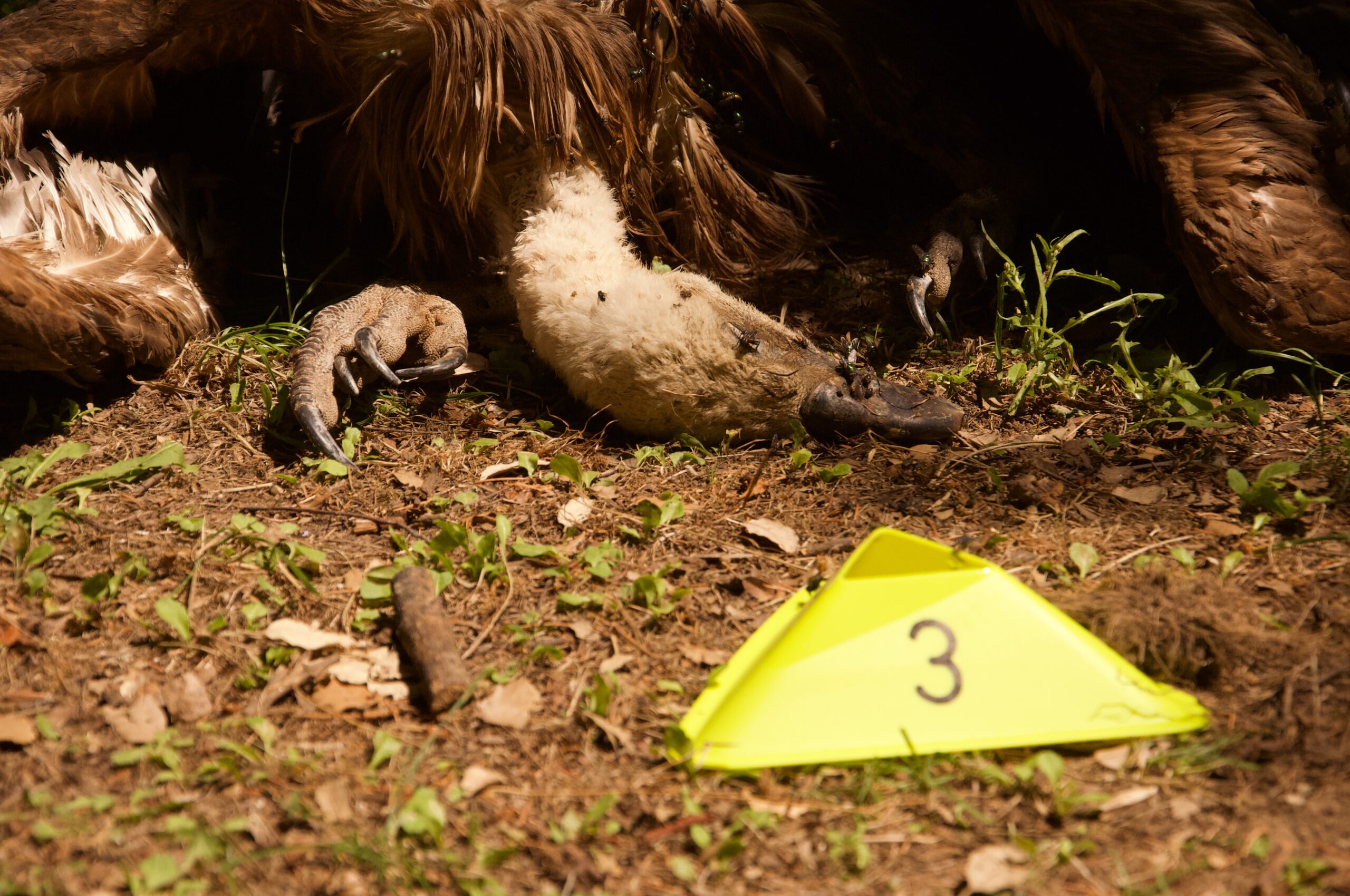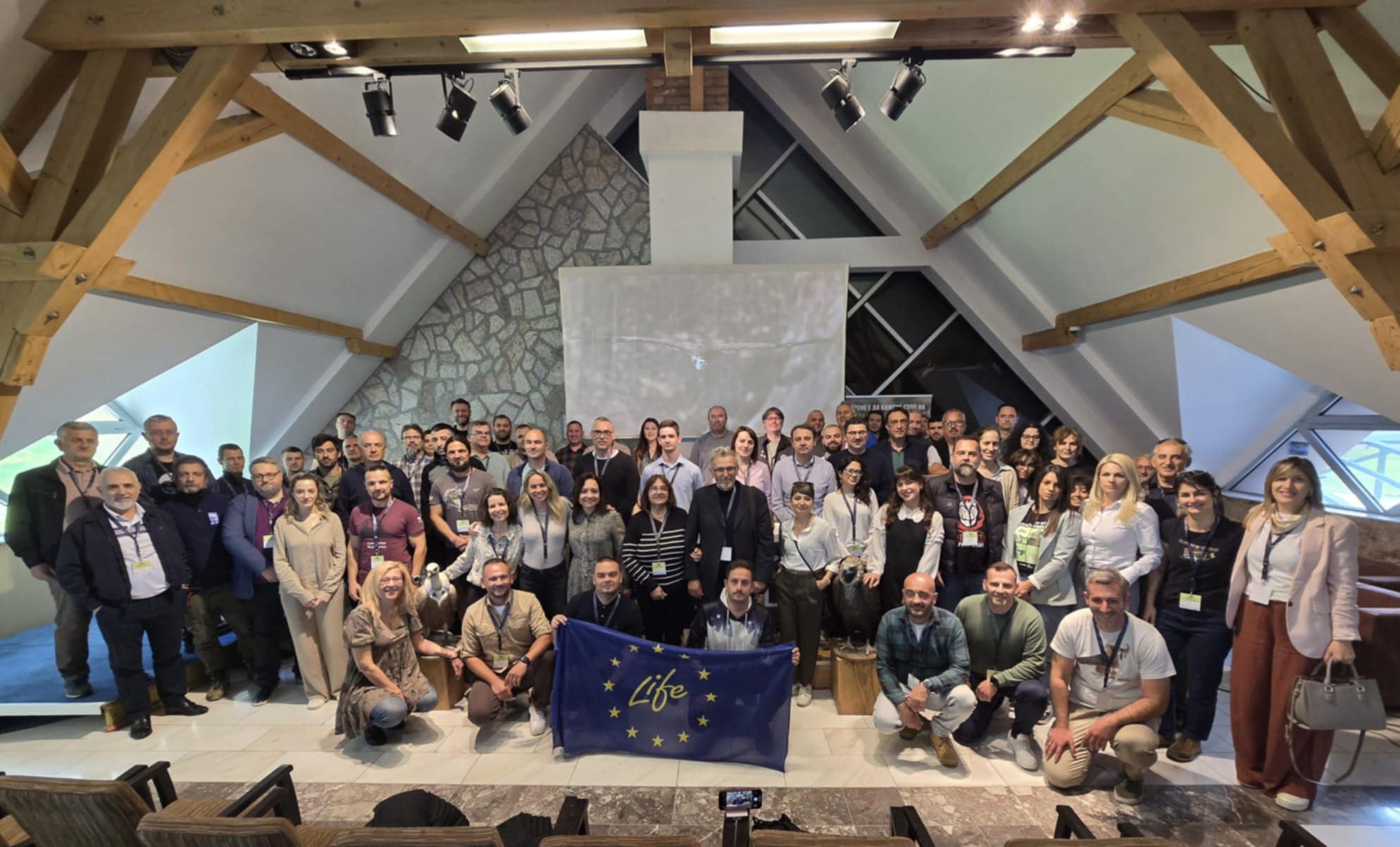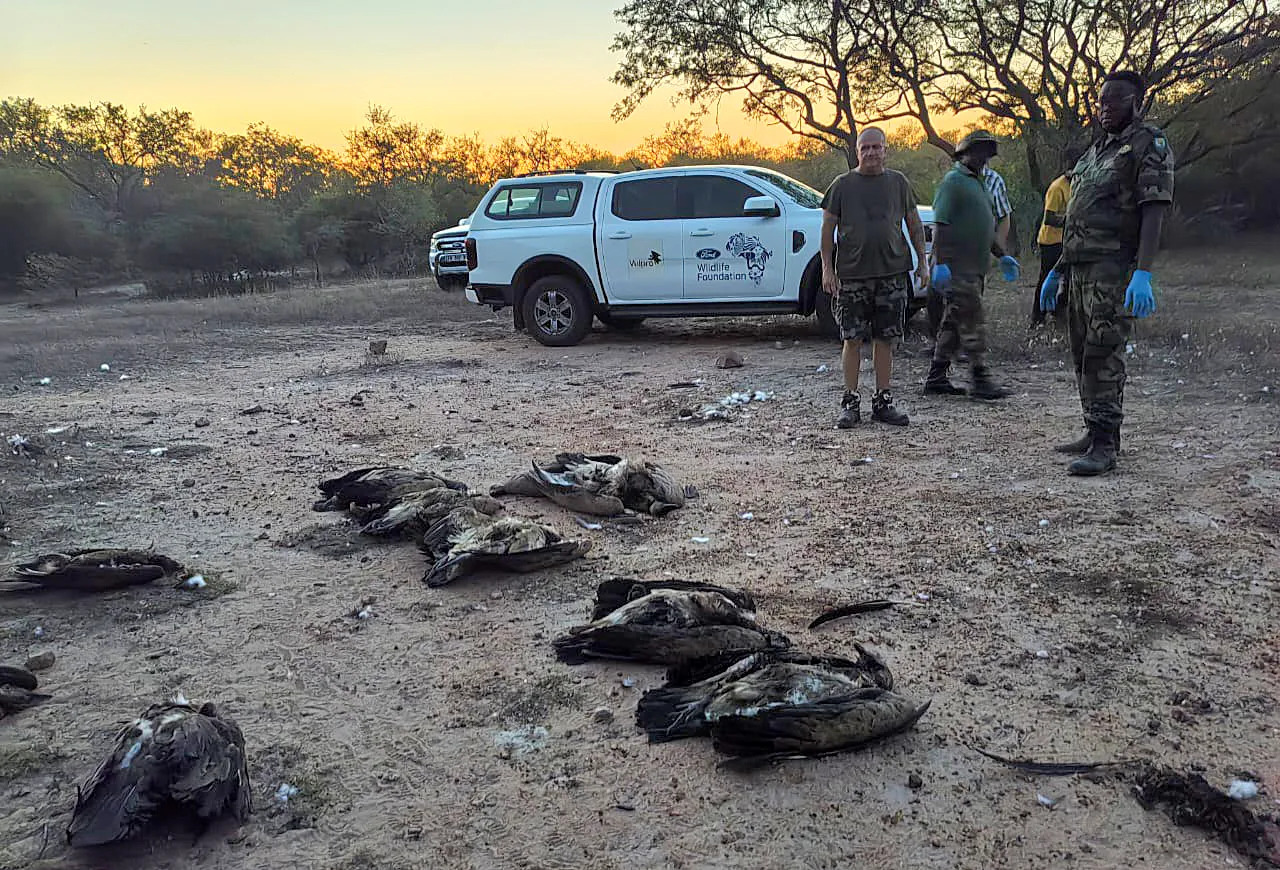
Mass poisoning strikes again – this time killing at least 27 vultures in Zululand within a week. Deaths from this tragedy include 23 critically endangered African white-backed vultures, three endangered Lappet-faced vultures and one critically endangered White-headed vulture. Two vultures survived the poisoning and are being treated now but they are in a critical state. Experts suspect that the mass poisoning targeted vultures for mathi.
First mass poisoning – 11 vulture carcasses

On Friday 7 June, a landowner discovered vulture carcasses on his property and immediately alerted the Zululand Vulture Project, which is facilitated by the Endangered Wildlife Trust (EWT). The Emergency Response Team responded to the scene and immediately initiated poison response protocols. It was a shocking experience as they discovered a total of 11 dead vultures at the scene.
Wildlife ACT’s Emergency Respond Fund manager, PJ Roberts and senior monitor, Dani Theron were the first to arrive at the scene. PJ emphasised the severity and damage of the situation, saying, “it’s a truly shocking thing to experience. Walking to the site of the incident and coming across bird after bird lying decomposing on the floor. The damage caused by such a senseless act is massive, and having the assistance of Zap-Wing to help gauge the extent of the damage surrounding the site was vital. The Vulture breeding season has already commenced, so it is likely that some of these birds may well have been resident breeding individuals.“
Second mass poisoning – 16 vulture carcasses

Unfortunately, the bad news continued. On Wednesday 12 June, 16 more vultures were discovered dead – bringing the total number of vulture carcasses to 27.
In addition, two other vultures were found alive at the scene but are in a critical condition. Clinic manager at Raptor Rescue Ben Hoffman states “things are not looking very good at the moment, they were badly poisoned”, and even if they make it through in the next few days, it might take at least six months for them to recover fully. He also said that out of the 18 poisoned vultures, seven were certain to have had nests as it is currently breeding season for vultures. Hoffman further suspects that the poisoning was intended to kill vultures in the purpose of ‘muthi’, which is a traditional medicine practice in the region.
Killing or harming vultures is a criminal offence and an official case opened and is being investigated by Zululand SAPS Stock Theft Unit.
We here at the Vulture Conservation Foundation, are saddened by the news, and strongly condemn these actions. What makes matters even worse is that at least seven of the vultures killed were breeding birds, decreasing the number of potential chicks being born. We hope the criminal or criminals responsible are found and brought to justice.
Mass poisonings in Africa are a common problem

Unfortunately, mass poisonings in Africa are successive and frequent, driving several species of African vultures to extinction. Last year, just one poisoning incident killed 87 vultures. In the past 30 years, some African species have declined by 80%. Seven of Africa’s vulture species are on the edge of extinction, with four species considered Critically Endangered, while three other species are Endangered. The Vulture Multi-species Action Plan (Vulture MsAP), co-developed by us here at the Vulture Conservation Foundation, and endorsed by the Convention for Migratory Species (CMS), concludes that poison is the biggest threat to vultures worldwide and a significant part of this global action plan for vultures focus on the actions needed to fight this threat. Furthermore, the Vulture MsAP is a global strategic blueprint identifying priorities and actions to conserve 15 species of old world vultures, approved in the conference of the parties of the Convention for Migratory Species, which states that poison with poisoned baits (often against predators of livestock) is the main threat to vultures worldwide.
How we tackle vultures’ biggest threat
The VCF is particularly active in fighting this threat and is implementing many projects across Europe, including many actions against poisoning. We are also in contact with some African colleagues fighting this threat, but the news coming from that continent are even bleaker than from Europe – seems that the African vulture crisis that led to several African vulture species being considered globally endangered in the last few years is continuing. In Europe the we are actively pursuing different lines of work to fight this threat, among which is the Balkan Anti-Poisoning Project, funded by the MAVA Foundation, where we are working and funding local partners in five counties (Croatia, Albania, Bosnia-Herzegovina, North Macedonia and Greece) to try to eradicate this illegal and highly damaging practice.




